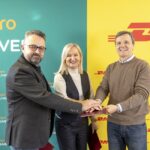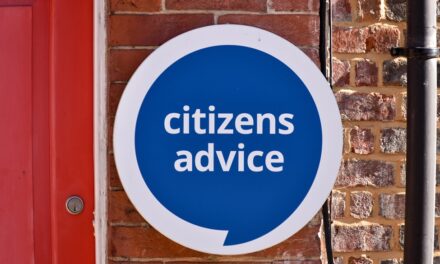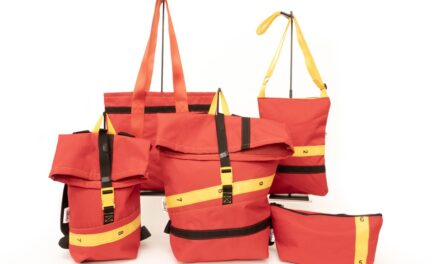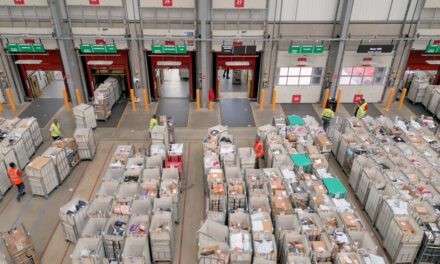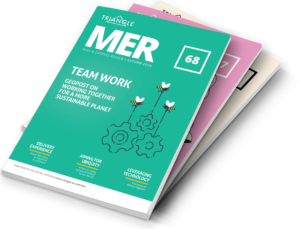
Royal Mail: supporting remote and isolated communities “in the greenest way possible”
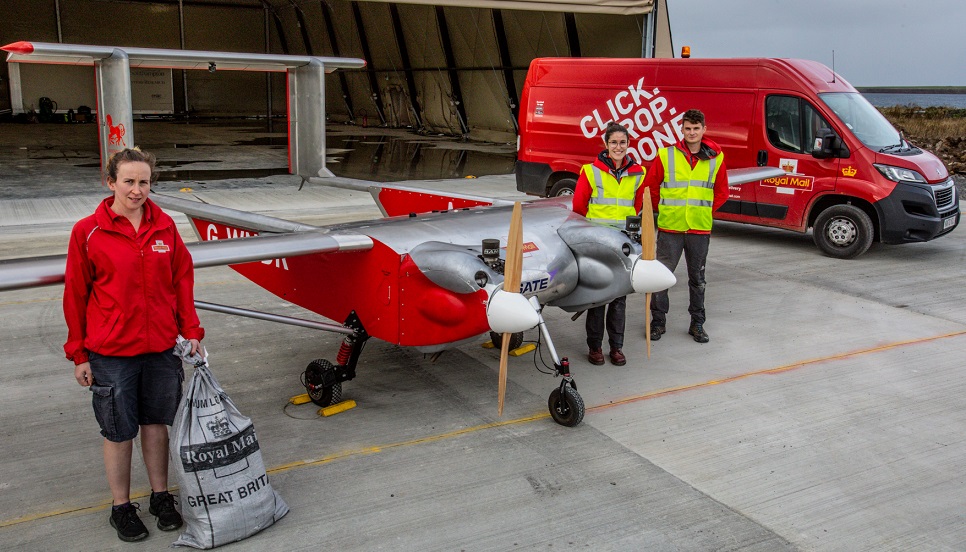
This week Royal Mail has started a trial of scheduled, autonomous flights for two weeks between Kirkwall and North Ronaldsay (both in the Orkney Islands) with Windracers Ltd to help better connect remote island communities.
In doing so, Royal Mail is taking the first steps towards the Company’s goal of developing permanent, reliable, lower emission delivery solutions for remote communities entirely by an Uncrewed Aerial Vehicle (UAV).
The flight trials, which form part of the SATE project funded by UK Research and Innovation (UKRI) via the Industrial Strategy Challenge Fund, will use a large, twin-engine, UK-built UAV named ULTRA. The UAV has been designed, built and operated by Windracers Ltd to carry mail from Kirkwall Airport on the Orkney mainland to the island community of North Ronaldsay, a 35-mile flight each way. Further north than the southern tip of Norway, North Ronaldsay is the furthest flung of the Orkney Islands. The trial will support the community of around 70 people on North Ronaldsay with a service that is expected to be less affected by poor weather, while reducing emissions.
The Windracers ULTRA UAV can carry 100kg of mail of all shapes and sizes – equivalent to a typical delivery round – enabling the transportation of all mail bound to and from the island community of North Ronaldsay. Letters and parcels will then be delivered by the local postie in the usual way when they reach the island.
If the trial is successful, the technology will be considered by Royal Mail to support postmen and postwomen in delivering to very remote areas and addresses across the UK. UAVs can fly in poor weather conditions, including fog, because they are uncrewed, and unlike boat services they are not affected by tides. This could make them well suited to help Royal Mail better service remote island communities and provide deliveries in all weathers while also helping to protect some of our most beautiful environments.
Sarah Moore, local postwoman for North Ronaldsay, said: “It’s really exciting to be involved in this trial. North Ronaldsay is a very remote area of the UK and I’m proud to be involved in an initiative that will help Royal Mail to do all we can to keep all areas of the UK connected.”
Nick Landon, Chief Commercial Officer at Royal Mail, said: “At Royal Mail we care about delivering a brilliant service for all of our customers, wherever they live in the UK. We are also incredibly passionate about protecting our diverse and beautiful environments. This trial is designed to help with both of these goals, using the most innovative technologies to support the remote and isolated communities we serve in the greenest way possible. The trialling of drone technologies is just one of the ways we are supporting our postmen and postwomen to deliver an amazing service, while reducing our carbon emissions.”
Charles Scales, Chief Executive Officer at Windracers, said: “Windracers is delighted to be operating one of our 100kg payload ULTRA UAVs to North Ronaldsay for Royal Mail. Our autonomous system will deliver an all-weather service for the community and significantly lower carbon emissions. We would like to thank our SATE project partners, HIAL, the University of Southampton and Innovate UK.”
Dougie Cook, HIAL’s General Manager North, said: “This is a significant trial for UAVs that form an important part of the SATE project. The facilities at Kirkwall Airport provide an ideal testing centre for this innovative application of UAV technology, which could bring practical benefits to the communities that HIAL serves.
“The SATE project is an important collaboration for HIAL and allows us to work with partners who are leading the way in sustainable aviation on a global scale. We are committed to being at the forefront of Scotland’s efforts to transition to a low carbon future.”




